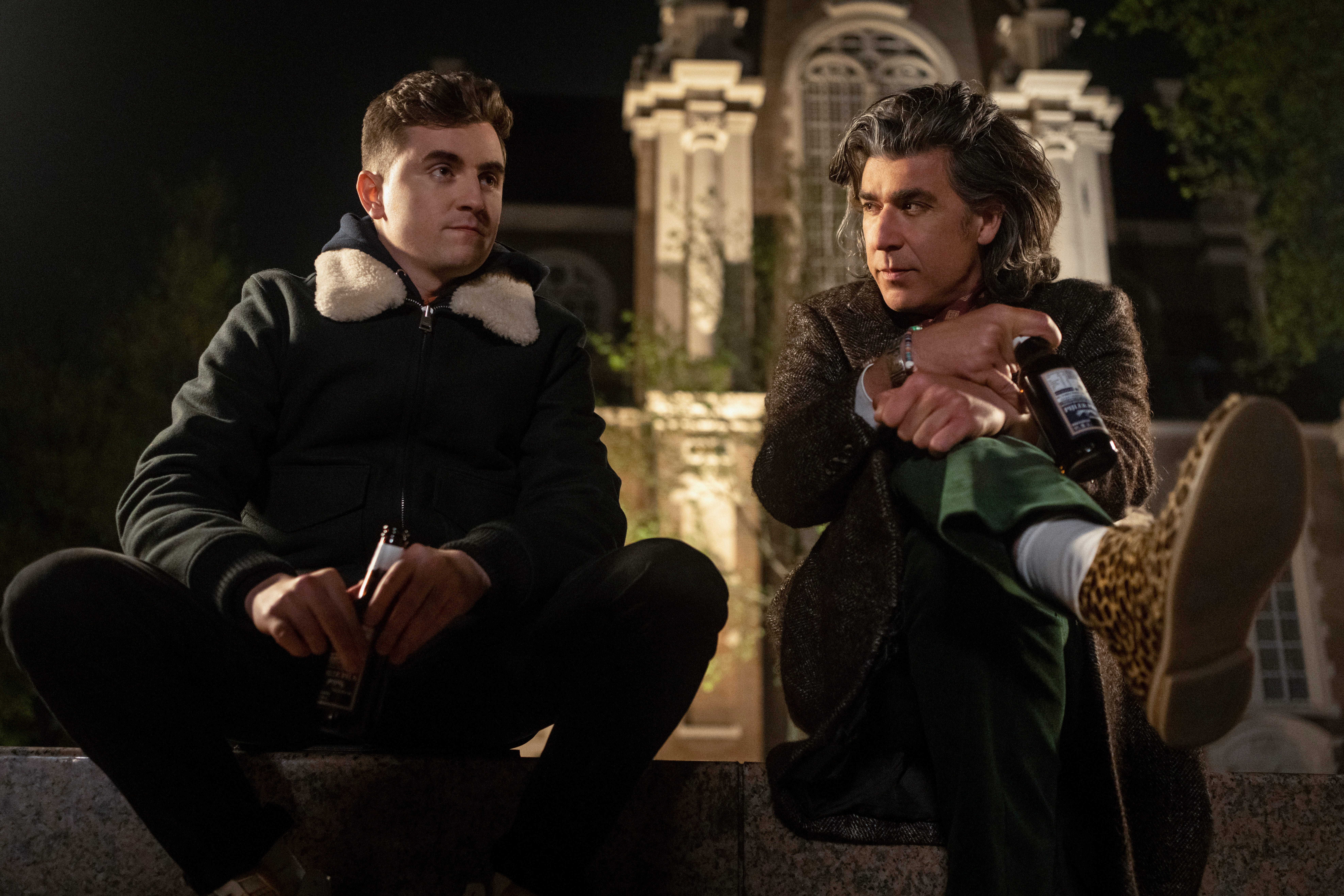Ted Lasso shows us football as it could be
Spoilers for season three ahead.
If you’re up to date with season three of Ted Lasso, you’ll know what this week’s newsletter is about. If you’re not caught up, then the below is littered with spoilers so you should stop reading, bookmark this post, and come back when you’ve watched the latest episode, “Sunflowers”.
There’s a trope in TV and film that queer people will have noticed: the gays don’t usually survive. They usually suffer the worst possible fate. When the writers of Ted Lasso resisted such tropes, it was a relief.
This season has seen the introduction of two queer plot lines: one focusing on Colin, a first team player for the fictional AFC Richmond, and one focusing on Keeley, a PR consultant for the club.
Colin likes men. He’s not out to his teammates but he gets spotted snogging another guy by journalist Trent. Trent, it turns out, is gay too. He seems to have come out later in life. He tells no one what he saw, instead opting to offer support to Colin.
So rather than the usual gay tragedy, we get empathy.
To have Ted Lasso, a high-profile TV series about a Premier League club, featuring a gay player storyline is significant for two reasons: firstly, it might help more queer people engage with the sport, and secondly – and more crucially – it might change attitudes among football fans.
Many queer people don’t engage with football because they have no reason to. Why would you get involved with a sport that is seemingly so hostile to queer people that only two professional players in England have ever felt comfortable enough to come out while still playing?
While we shouldn’t put pressure on male footballers to come out, it’s no coincidence that the women’s game, which has markedly higher queer representation among its players, attracts a much queerer fanbase. Until football creates environments where players feel comfortable enough to come out, the game will continue to be unattractive to queer people too.
One way football – clubs, leagues, fans, the media – can create that environment is to normalise queer people’s involvement and existence within football.
Culture, like Ted Lasso, can play a massive part in doing that. Which brings me to the second reason: this could help change attitudes among football fans.
Gay representation on Ted Lasso might feel insignificant to you, but it will adjust people’s perceptions of what’s possible.
The vast majority of people who watch Ted Lasso aren’t queer. Having one of their favourite shows presenting a queer football player storyline to them with warmth and empathy might just make them think twice about how they can change their behaviour to make things more welcoming.
It might make the moment another brave player decides to share their full self with the world feel less significant, less shocking to them. It might help “normalise” the idea that professional footballers can be gay.
To be clear, I’m not applauding Ted Lasso just because it’s included a couple of queer characters. I’m applauding it because it’s also absolutely nailing the execution of the storyline.
It’s not sensationalist or tropey. It feels genuine, thanks to Billy Harris’ powerful, understated performance. It feels grounded in lived experience, thanks to thoughtful writing. Harris has shouted out writers Dylan Marron and Chuck Hayward for their work on the third season.
It’s all in the details: I remember taking a similar gasp for breath before stepping foot in a gay bar for the first time, just like Colin. I remember that feeling of wanting to unite the two lives I had been living, just like Colin.

These details transform Colin from a bit-part, two-dimensional character into a fully realised, sensitively portrayed representation of what it’s like to not be out.
And importantly, the show avoids this representation feeling tokenistic by having Colin’s story sitting alongside Keeley’s falling in love with another woman – another queer story presented delicately, almost nonchalantly.
Ted Lasso is a show of contradictions and contrasts. It mixes humour with pathos. Cheesy humour with sophisticated pay-offs. Sometimes, it seems to grasp the magic of football and at others it feels like it knows nothing about the sport.
There’s something slightly uncanny about the show – it’s so near yet often so far. At times, I’ve found the implausibility of its footballing storylines a little startling, off-putting even. But its distance from the reality of football serves a purpose: it shows football as it could be, not as it is. It's a football fantasy, literally.
Colin’s story has provided a blueprint both for how gay characters should be treated by TV shows (with empathy and love) and for how football should react to gay players (also with empathy and love).
The show’s season – and Colin storyline – isn’t over yet. Let’s hope that Ted Lasso continues to show us all what football could be, not what it is.



